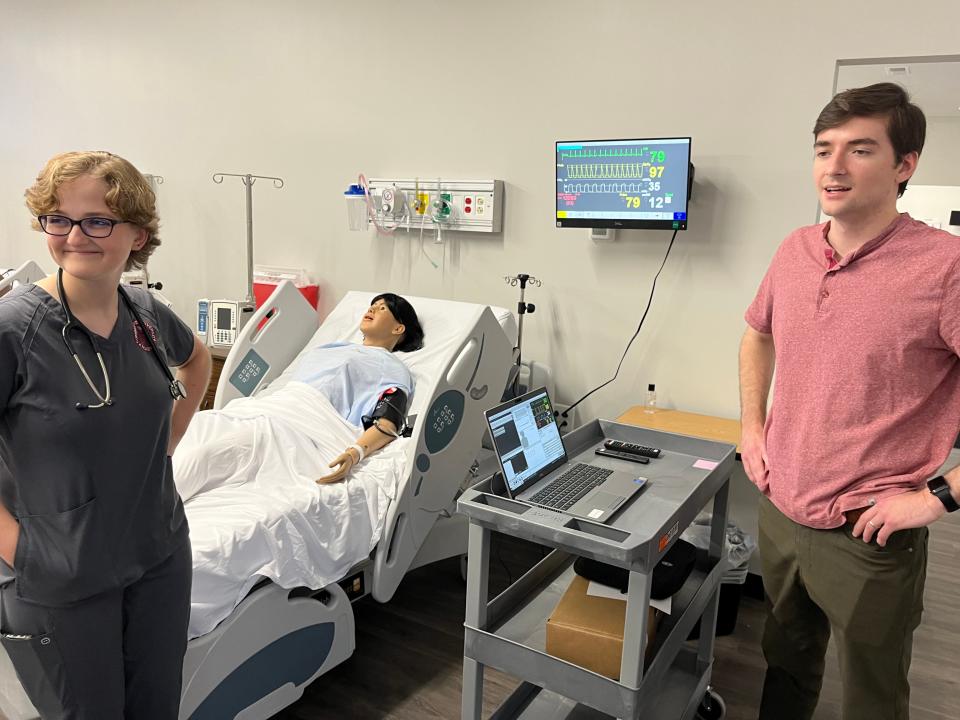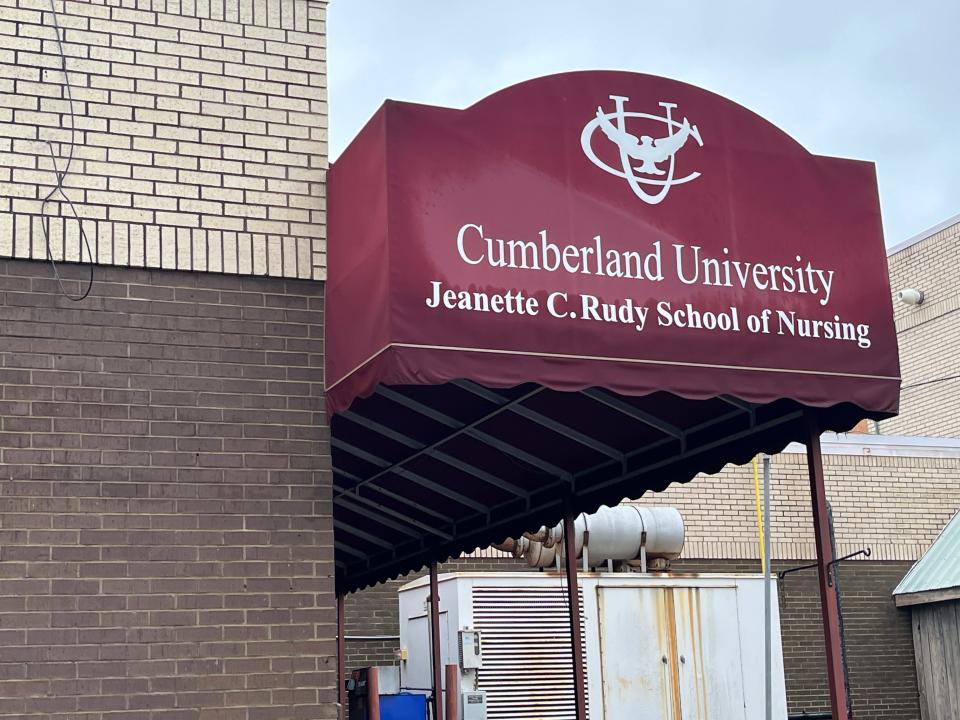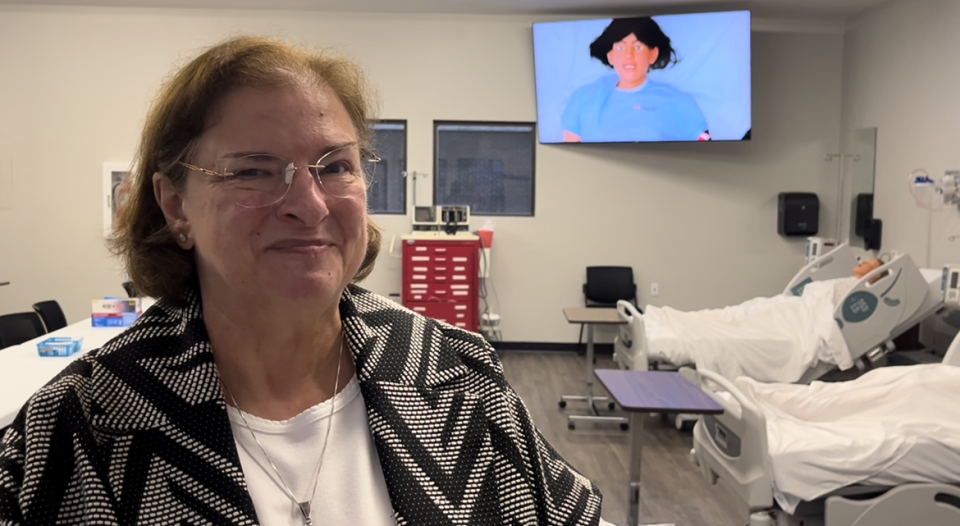Cumberland University launches program to help address Tennessee nursing shortage
Isaac Wilson, a senior at Cumberland University in Lebanon, wants a career in a field that is understaffed and overworked, according to statistics.
Wilson wants to be a nurse, and a nationwide shortage hasn't changed his career direction despite the rocky landscape.
“The only people I would usually ever remember from a young age were the nurses,” Wilson said. “They were able to make a positive impact on me as a patient or my family member. So I really wanted to be that one person that could make the difference even if it’s the littlest thing for someone. I just think nursing is the best way to care for someone in their time of need.”

Cumberland plans to offer guaranteed admissions to its nursing program to qualifying freshmen as a way to draw young students to the school and to the nursing profession during a nationwide shortage.
The school is launching the Guaranteed Nursing Admissions application program for the fall semester.
The program will allow high school seniors with an ACT composite score or super score of 25 or better and a 3.5 cumulative grade point average on a 4.0 scale to apply and receive a guaranteed admission into the program.
Students accepted will take general education classes at Cumberland for their first two years and then are guaranteed a place to enter into the nursing school as juniors if they keep at least a 3.0 overall GPA and earn at least a B in all science courses. Students who meet the academic requirements can still apply while they are freshmen, said Mary Bess Griffith, dean of Cumberland's Jeanette C. Rudy School of Nursing and Health Professions.
Students with at least a 2.75 GPA at Cumberland and who qualify with a minimum “proficient” level score on a nursing entrance exam can be considered for admission to the nursing school but aren’t guaranteed a seat.

“Of course we want (students) to come to Cumberland,” Griffith said. “But the main thing is we want them to stay in Middle Tennessee. Because if they stay in Middle Tennessee then more than likely they are going to work in Middle Tennessee, and that’s going to help contribute to solving the nursing shortage (in Middle Tennessee).
“We’re trying to make learning more efficient and effective, thus elevating the quality of the graduates and the nurses that are graduating from here, thus elevating patient outcomes.”
Tennessee has a shortfall of about 15,700 registered nurses when compared to the National Average Level of Care, according to the Tennessee Hospital Association. Medical lab technicians are down 4,310 and respiratory therapists 940 statewide based on NALC figures. The NALC estimates the number of health workers that would be needed to achieve the national average staffing level.
A shortage of health care workers was anticipated, as many medical professionals are reaching retirement age, combined with a greater demand for health care workers as baby boomers also head into retirement. And COVID-19 has likely accelerated the number of health care workers leaving the profession, experts have said.

“I think innovation is critical at a time we are all trying to be thoughtful and creative about supporting health care needs in our communities,” Vanderbilt University Medical Center executive chief nursing officer Marilyn Dubree said about Cumberland’s Guaranteed Nursing Admissions program.
About 96% of Cumberland nursing school graduates work in Middle Tennessee, Griffith said.
Cumberland had 182 students in its baccalaureate of science program in nursing in the fall semester. The goal is to increase that to 300 students. Cumberland also has a science in nursing master's program with about 20 students, and next fall semester will offer an undergraduate program for persons already licensed as practical nurses qualified to become certified registered nurses. Cumberland expects about 30 students for that program, Griffith said.
The school has taken steps to increase its nursing school infrastructure in the anticipation of growth, including adding three new nursing labs, additional classroom space, faculty, and simulation equipment that includes high-tech mannequins for students to work on.
The school collaborates with Vanderbilt Wilson County and TriStar Summit hospitals, allowing students to work alongside practicing nurses and faculty. Cumberland works with other providers to provide students additional clinical experience.
“Increasing admission rates into accredited nursing programs is vital to combat the nation’s nursing shortage,” said Heather Stafford, chief nursing officer at TriStar Summit Medical Center.
The Tennessee Hospital Association has worked over the past year on several initiatives to address the health care and nursing shortage, according to spokesperson Kelly Insana. They include:
Recruiting new students to the health care workforce pipeline.
Helping today’s workforce deal with burnout and stress.
More flexible staffing models.
The association has also launched a campaign that highlights hospital careers and resources to start students on those paths.
“Why they do what they do is just to help people,” Cumberland nursing student Carol Anne Clanton, a junior, said about her future occupation. “I think definitely working in the hospital setting can be really hard on nurses. … They can be spread thin, they can have a lot of patients, have long hours. But you are doing what you love. To me that makes it worth it.”
Reach Andy Humbles at ahumbles@tennessean.com or 615-726-5939 and on Twitter @ AndyHumbles.
This article originally appeared on Nashville Tennessean: Lebanon Cumberland University nursing program addresses shortage

